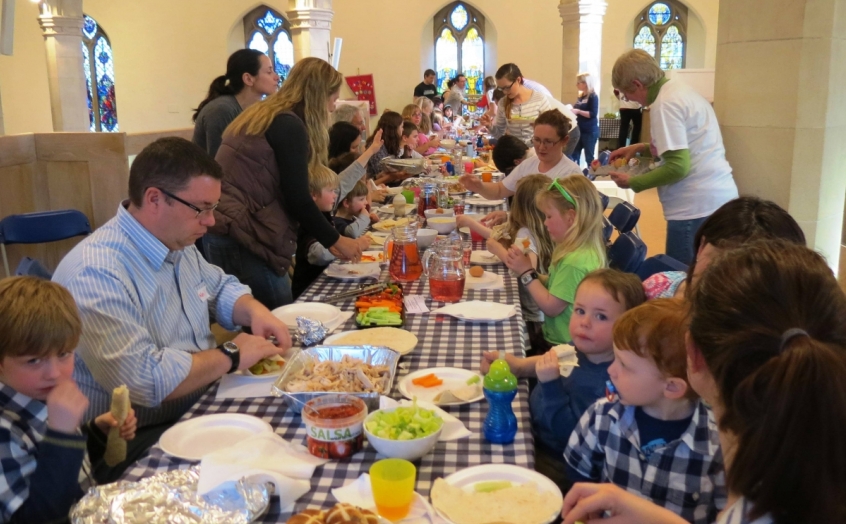
The Messy Church movement has celebrated its 3500<sup>th church registration today in a milestone for the organisation.
Messy Church is designed as a way for families who would normally not attend church to come together and explore Christianity. It is part of the Bible Reading Fellowship (BRF), an Anglican initiative formed in 1922, aimed at transforming lives and communities through the Christian faith.
Founder Lucy Moore said: "We're delighted with this milestone in the development of Messy Church around the world. The more Messy Churches there are, the more families there are getting to enjoy the good news of Jesus."
Messy Church was first created by a team at St Wilfrid's Church, Portsmouth in 2004. It took the form of more informal, alternative meetings which combined arts and crafts, worship and sharing a meal, woven together with a biblical theme.

It is now found across the UK and in 30 countries. BRF estimates that at least 500,000 people attend a Messy Church each month, more than half of whom have had minimal prior connection with Church.
Moore told Christian Today: "I think because it involves a lot of churches being very hospitable and putting the needs of outsiders before their own needs, being very imaginative and creative about way they do church - keeping Christ at the centre, sharing the gospel message in a really fun and accessible way."
On why Messy Church is an important movement, Moore said: "I think it's given a lot of churches confidence to be church together - to be a worshipping community that's outward facing where adults and children can come together to be part of a church that loves God and loves each other and keeps families together instead of splitting them up."
Moore said that many ministers still see it as peripheral to 'real Church', even though for her, it is very much a real expression of Church, and an important one that can actually bring different churches together. "I hope that it'll be the first step for a lot of denominations to work together. We see so many ecumenical messy churches," she said.
Messy Church brings in outsiders, but it also energises the congregations: "For a lot of churches it's given them a new lease of life. It's turned the congregation from passengers into crew members, remembering what the gospel is all about."
As for the future of Messy Church, Moore says: "It's in God's hands, we're just running behind shouting 'Wait for us!'"













